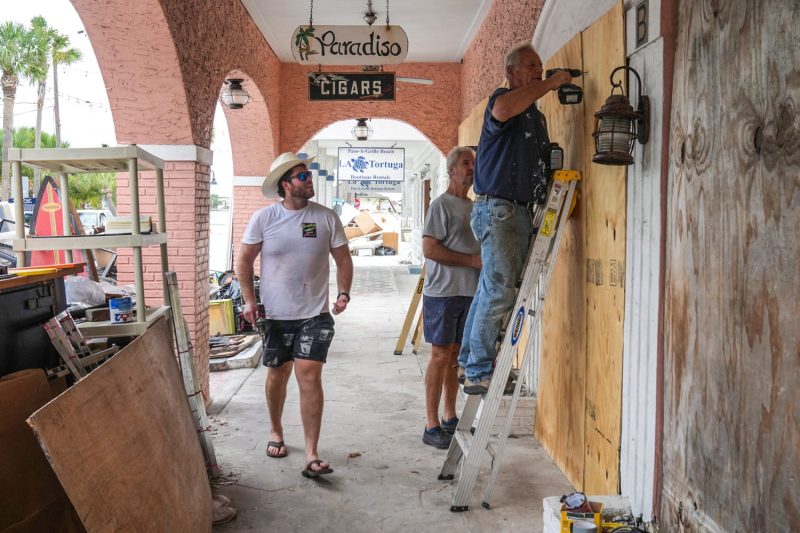The recent intensification of Hurricane Milton has resulted in significant market movements, with shares of generator maker soaring while insurance stocks experience a decline in value. This dynamic shift in the market reflects the economic impact of severe weather events on various sectors. The increase in demand for generators is a direct response to the need for reliable power sources during natural disasters, highlighting the importance of preparedness and resilience in the face of such events.
Generator Maker Stocks on the Rise
As Hurricane Milton gathers strength, investors are turning their attention to companies that provide essential tools and equipment for disaster preparedness. The surge in share prices of generator maker companies indicates a growing demand for their products as individuals and businesses seek to secure a reliable source of power in anticipation of potential power outages. This trend underscores the critical role that these companies play in ensuring continuity and stability in times of crisis.
The rise in generator maker stocks also highlights the market’s recognition of the increasing frequency and severity of extreme weather events. Climate change has been fueling a rise in natural disasters, making it imperative for individuals and organizations to invest in reliable backup power solutions. The performance of generator maker stocks in response to Hurricane Milton serves as a stark reminder of the importance of proactive risk management and disaster preparedness measures.
Insurance Stocks Face Pressure
Conversely, insurance stocks have experienced a decline as Hurricane Milton intensifies, reflecting the potential financial impact of the impending storm on the insurance industry. The heightened risk of property damage, flooding, and other insured perils associated with hurricanes has led to a decrease in confidence among investors in insurance companies. The prospect of significant payouts for claims related to Hurricane Milton has put pressure on insurance stocks, signaling a challenging period ahead for the sector.
The diminishing value of insurance stocks underscores the interconnected nature of financial markets and the real-world consequences of natural disasters. Insurance companies play a crucial role in providing financial protection and support to individuals and businesses affected by unforeseen events. However, the volatility in insurance stocks in response to Hurricane Milton highlights the delicate balance between risk assessment, pricing, and profitability within the industry.
Implications for Market Participants
The contrasting performance of generator maker and insurance stocks in the wake of Hurricane Milton provides valuable insights for investors and market participants. The surge in generator maker stocks underscores the importance of recognizing and capitalizing on emerging opportunities in response to changing market conditions. Investors seeking to diversify their portfolios may consider allocating resources to sectors that demonstrate resilience and growth potential in the face of natural disasters.
Conversely, the decline in insurance stocks serves as a cautionary reminder of the inherent risks and uncertainties associated with the insurance industry. Market participants are advised to conduct thorough risk assessments and due diligence when evaluating investments in insurance companies, particularly in regions prone to natural disasters. The performance of insurance stocks amidst Hurricane Milton underscores the need for robust risk management strategies and insurance underwriting practices to navigate volatile market environments successfully.
In conclusion, the recent market movements following the intensification of Hurricane Milton highlight the complex interplay between natural disasters, financial markets, and economic sectors. The surge in generator maker stocks reflects the growing demand for essential disaster preparedness tools, while the decline in insurance stocks underscores the challenges faced by the insurance industry in times of crisis. As investors navigate these shifting market dynamics, strategic decision-making and risk management will be critical in capitalizing on opportunities and mitigating potential losses in the face of natural disasters.
